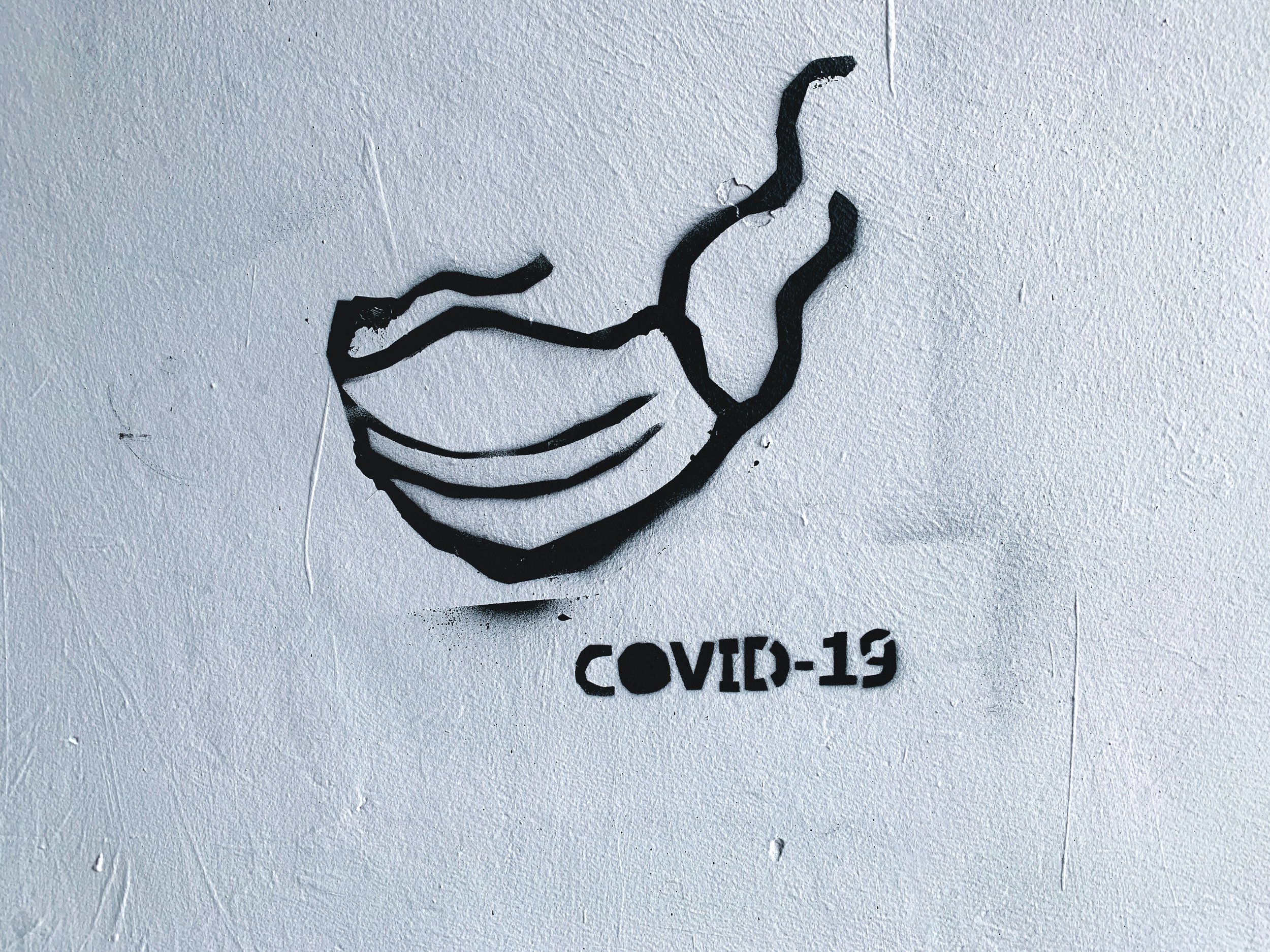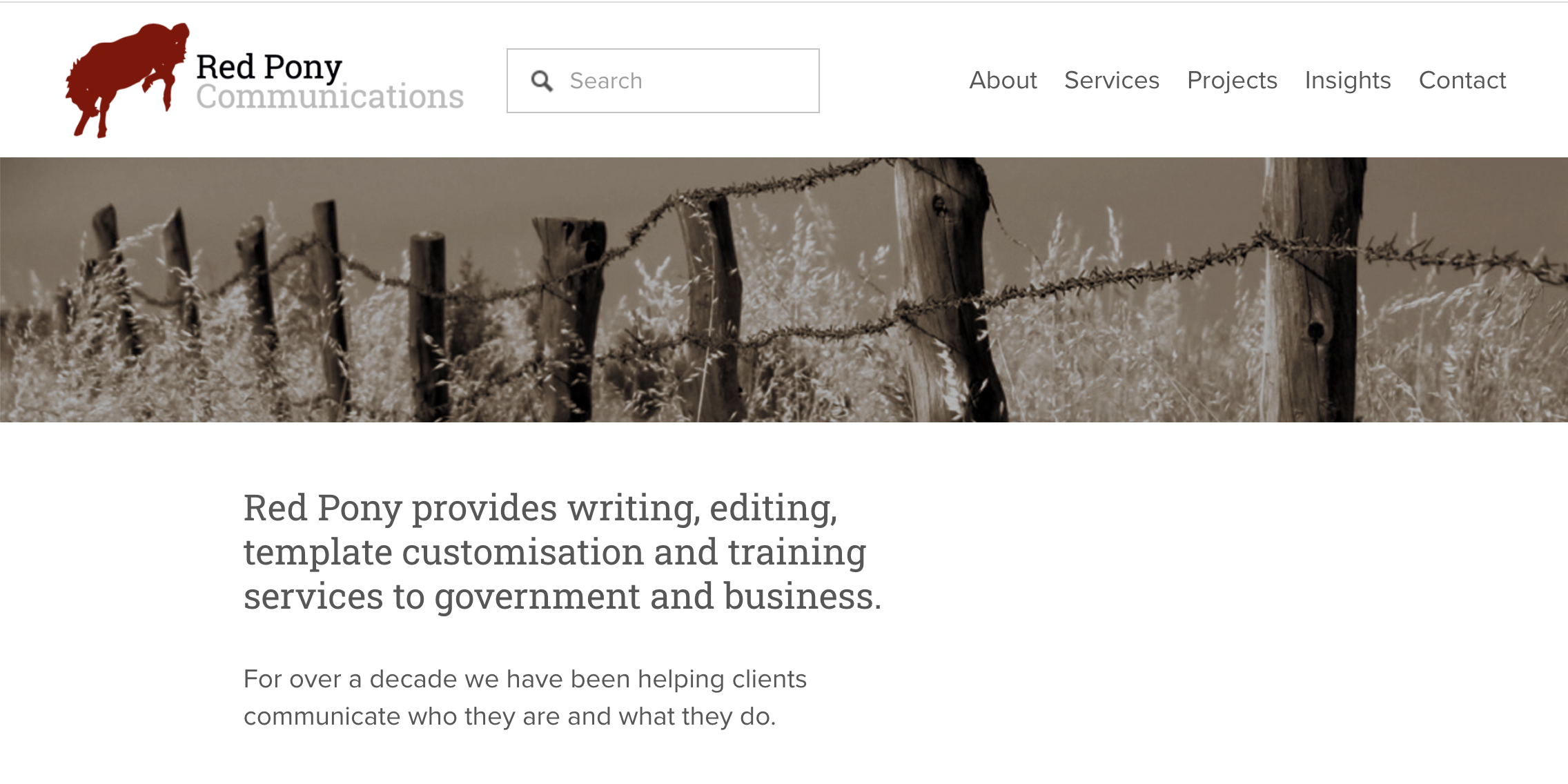Insights archive
Red Pony is a team of writers, editors, Microsoft Office template developers and communications trainers. We have been writing about our areas of expertise for over a decade in our Red Pony Express newsletter.
This collection features the best articles from the last 10 years.

Red Pony Express marks its 15th year
Back in 2008, my colleague Andrew Eather and I began working on ideas for a newsletter we could send out every couple of months. In the tradition of the television ‘clip show’, I’m going to look at some of our previous articles and the people who wrote them.

Neologisms: language upcycling through the ages
Unsurprisingly, neologisms are often the by-product of a cultural or technological shift. In the case of the pandemic, reactionary linguistic terms spawned rapidly to cope with an intensifying global crisis.

Your website is never finished
A website should never be a static thing. Red Pony’s own web presence has gone through a number of minor and major revisions over the years. Changes to the content and the structure reflected changes in the business as well as upgrades to the underlying software platform.

Simple tips for refreshing website content
Like a lot of other businesses, we’ve been using the COVID-19 downtime to do a bit of housekeeping, including the next iteration of the Red Pony website (more about that soon). We’ve also been helping several other clients develop content to update their own sites, so I thought I’d use this opportunity to provide a few tips on writing for the web.

Panic stations: fear amid an ‘infodemic’
There is much uncertainty and fear in the current COVID-19 crisis. We fear the disease itself, the possibility of death, the unknown. We fear the loss of our livelihoods, our ability to connect with others as we have done and of life as we know it. Many of us have already suffered losses, and for some the prospect of more loss is devastating. Much of this fear is real. But there is also much misinformation, intended or not.
Four writing styles and when to use them
If you were to read the instructions for operating a nuclear reactor, you would expect it to be written very differently to a novel about a nuclear accident, or a newspaper editorial about the merits (or otherwise) of nuclear power.
One idea for better writing
It sounds a bit simplistic to say to that one idea will improve your writing, doesn’t it? But it’s true. Just one idea can make a big difference.
Forensic linguists identify criminals by their writing style
The way you write – the length of your sentences, your use of punctuation, or your intractable belief that ‘professional’ should have two Fs in it – creates a linguistic ‘fingerprint’ that can be used to identify you. Forensic linguists have been tasked with examining blackmail letters, death threats, potentially faked suicide notes and even historical items, such as the famous ‘Bixby letter’, supposedly penned by Abraham Lincoln, but a matter of fierce debate.
Why Coca-Cola is better than Pepsi (grammatically speaking)
To what degree is good grammar a predictor of overall success? According to a recent study, there may be a correlation between good writing and how a company performs against its competitors.
Questions to ask before updating your website
The process of developing and launching a new website can be exhausting. It can take months (and sometimes years) to progress through the concept, design, content development, configuration and testing phases before the new site is finally uploaded to the live server. But what happens next?
Three tricks to writing sticky web copy
When someone visits your website, opens your newsletter or looks at your latest social media post, you want to engage their attention so that they’ll read on. ‘Sticky’ web copy keeps your audience reading and encourages further interaction: clicking a link, adding a product to a shopping cart, joining a mailing list. So how do we make our web copy sticky?
Four tips for developing a content-rich website
Some readers will be aware that back in December we launched a new version of the Red Pony website. I thought I’d take the opportunity to share a few of the lessons we learned from this exercise – from the perspective of both client and content provider.
The power of metaphor
But often your goal is to persuade as much as it is to inform. And that’s where metaphor is your friend. Metaphors are so prevalent they often pass unnoticed, but that doesn’t mean they don’t leave a powerful impression in the mind of your audience.
Is your website losing you business?
One of your first tasks when setting up a new business is to establish a website. Your internet presence is indispensible for advertising your products or services to the world. But what if your website is doing more harm than good?
Creeps from the deeps
Perhaps you are familiar with a common horror movie device – it’s the opposite of the ‘sudden surprise’ that startles the audience and the protagonist at the same time. This is the one where the monster/tidal wave/giant squid looms up behind the protagonist to reveal its vast immensity to the audience before the protagonist turns around to be devoured/drowned/ingested.
Think before you write
Next time you are about to launch into writing something important, metaphorically bite your tongue and consider your reader before you start writing or your message may not be read the way you intended.
Google refines search algorithm to reward originality
In February this year Google announced a significant change to the algorithm it uses to rank search results. What’s most notable about the change is that it’s designed to reward websites that feature quality, original content.
Putting yourself in your client’s shoes
The lesson is this: always try to clarify in your mind who you are writing for—before you begin writing. Avoid making assumptions about the prior knowledge of your readers, particularly when writing for a medium as widely disseminated as a company website.
Writing for the web
While the goal in writing for the web is the same as for any other medium (convey your message clearly to your audience), there are a few differences to keep in mind.
